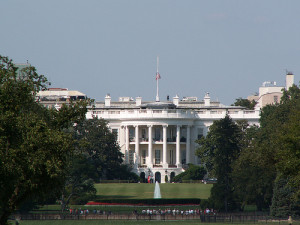A free government grant may sound like a dream come true. You apply. You get money. You don’t have to pay it back. Unfortunately, government grants are difficult to obtain and generally have stringent application requirements.  They are out there though, and for those businesses that meet the specific needs of the agency awarding a grant and can demonstrate their worth, a government grant may provide a significant infusion of funding. Note that government grants are not available to individuals, and they are not used for personal financial assistance, general ongoing operations or business launches. With these caveats in mind, here are five tips to help you get a government grant.
They are out there though, and for those businesses that meet the specific needs of the agency awarding a grant and can demonstrate their worth, a government grant may provide a significant infusion of funding. Note that government grants are not available to individuals, and they are not used for personal financial assistance, general ongoing operations or business launches. With these caveats in mind, here are five tips to help you get a government grant.
1. Find the Grant That’s Right for You.
The federal government has two programs that provide technology research grants, the Small Business Innovation Research (SBIR) program and the Small Business Technology Transfer (STTR) program. These programs look for small businesses to undertake Research and Development (R&D) projects that meet federal R&D objectives and have high potential for commercialization. The SBIR program encourages domestic small businesses to engage in R&D themselves; in the STTR program, small businesses work in partnership with research institutions.
You can find a list of open grants of all types at Grants.gov. Agencies that have participated include: National Institutes of Health (NIH); Centers for Disease Control and Prevention (CDC); National Park Service (NPS); National Science Foundation (NSF); Environmental Protection Agency (EPA); Fish and Wildlife Service (FWS); Bureau of Land Management (BLM); Department of Education (ED); Health Resources and Services Administration (HRSA); Administration for Children and Families (ACF);National Aeronautics and Space Administration (NASA); Dept of the Army (USAMRAA);Geological -Survey; Department of the Interior (DOI). Many, but not all, of the grants are for 501c-3 non-profit organizations. Use the helpful filters on the left side of the grant search page to narrow down your search.
2. Go Local.
Local government grants are usually intended to provide a boost to the regional economy or to promote an important cause. This might include areas such as energy efficiency, child care, tourism, local technology, education, or the arts. The best place to begin looking for local grants is the local economic development agency for the area where you intend to provide products and services.
3. Follow the Guidelines.
Granting agencies can be very particular about how grant applications are completed. Read the application carefully. Underline or circle every question, component, or requirement that needs to be addressed, and pull together your responses for each. Too often, proposals are rejected is because they don’t address what is being asked of them. Be specific and honest about your project budget, and remember to include your qualifications and references.
4. Give Yourself Time.
Make sure you have allotted enough time to put together a polished proposal before the deadline. It is essential that your grant proposal be well-written, with concise and professional language, careful organization, and required content. You want to leave yourself time to gather information and estimates from sub-contractors, if necessary, and go through careful editing and rewrites. Build in time to have at least one other reviewer besides the grant proposal writer review the proposal.
5. Watch Out for Scammers.
There are many companies out there who will offer to give you access to grants or provide you with grant proposals, and many are happy to take your money without delivering anything that is already available freely from the grant-issuing organization. Beware of scammers. Carefully check references for people you are considering hiring to help you with this process.
If you think your small business is a good candidate for a government grant, don’t be afraid to go after it. Do your research, plan and prepare your proposal carefully, send it before the deadline, and confirm its receipt. Then, cross your fingers and hope for the best!
Photo Credit: TopTechWriter via Photopin cc

